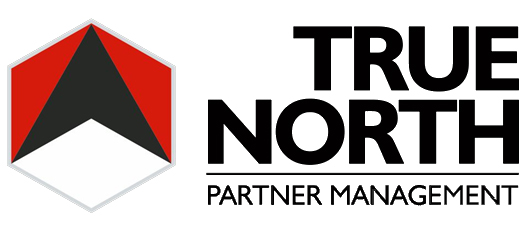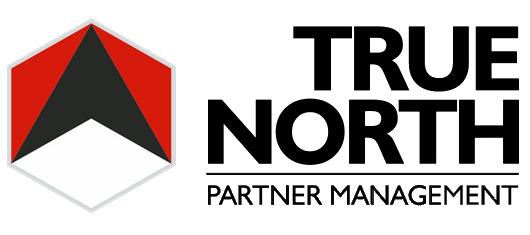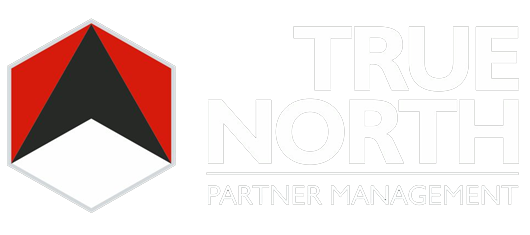The following post originally appeared on Forbes | October 19, 2015
Legacy is a stupid thing! I don’t want a legacy. ~Bill Gates
There are many ingredients to creating a legacy: perseverance, hard work, differentiation, excellence, effectiveness, and the list goes on. And if you’ve done everything right, and the powers that be throw in a bit of luck, a legacy just might manifest, bringing with it all of the appropriate benefits.
There is another side of the story, however. Often continued and hard fought successes – the path to a legacy – can harden initial commitments to dated processes and strategies. Rooted in past accomplishments, a false sense of security can settle in. Overly homogeneous cultures and prevailing psychologies can manifest, preventing innovation. Perhaps most insidious, defensive positions can arise again and again in strategy sessions, as legacy owners now have something to lose, something to protect. Otherwise known as “active inertia,” these after-affects can slow, greatly, a firm’s ability to switch gears and evolve with a shifting landscape.
DLA Piper is a firm that, though their roots trace back to the early 1800’s, counts their lack of a well-worn legacy as an advantage. The firm grew over the decades through a series of mergers, but gained critical mass with a 2005 merger between UK-based DLA LLP and Chicago-based Piper Rudnick. Today, with approximately 4200 attorneys, DLA is one of the largest law firms in the world. But with their diverse composition and relatively youthful disposition, rather than relying on just size to compete, they are also leveraging innovation, hunger, and flexibility as keys to competing as one of the global elite.
Today we hear from Roger Meltzer, DLA Piper’s global co-chairman and Americas co-chairman, about defining the “global elite,” law firm investment, polycentrism, and China, among other things. See our exchange below:
On Defining The Global Elite
Parnell: I think one of the challenges, one of the biggest challenges for law firms, is differentiation – I think you’ll probably agree. The market isn’t in unanimous agreement as to how firms are “defined.” And with that being the case, how can you really differentiate yourself if you don’t know where the boundaries are? This is a big challenge for the legal industry right now. With that in mind, considering the “global elite:” how would you define that?
Meltzer: I suppose you start with “global.” What does “global” mean? It means that you not only have to be in major money centers, but you have to be in secondary money centers, as well as emerging and developing parts of the world, because very often the clients – by virtue of their global nature – are deciding where the best opportunities are for them to achieve the highest return on their investments.
As a law firm leader, if one is not closely following the developments and the evolution of worldwide commercial markets, then you’re not doing what you ought to be doing to build the important geographies, sectors, and practices that you need to build.
With respect to geographies’ growth, many law firms, particularly post-2007, have been unwilling and unable to make the investments necessary in order to be truly global. Part of that is driven by the general conservatism of law firms; part of that by the absolute necessity for short-term profitability and performance; and some of it from uncertainties as to whether those geographies will ever pan out and be profitable. For us that means being in the places that have an emerging middle class, and a developing professional class to service that emerging middle class. Those countries are trying to get their arms around the best and highest ethics of business and commercial practice. It’s most of the G20, and those countries that are supportive of the economies in the G20, as well as specific countries in South America and Africa.
As far as “elite” goes, those that want to be at the top of the profession strive toward elite status. Some of that elite status that firms have enjoyed is a function of their legacies. For us, it is a function of driving standards, quality, and ultimately, performance, which allows us to drive deeper into the evolution of client relationships and to be more innovative.
On Polycentrism – Not Having A Headquarters
Parnell: Let me ask you about polycentrism. Dentons defines themselves as a polycentric firm — they don’t claim to have a “headquarters.” What are your thoughts on polycentrism? Does DLA have a headquarters?
Meltzer: At DLA Piper, we’ve never had a headquarters. We’ve said from the very beginning that simply because a significant proportion of the firm’s lawyers sit in a particular office does not make it the headquarters. The number of lawyers, even in our major offices, is not disproportionate to the number of lawyers in other places that you would not consider to be major money centers. Yes, there is a large contingent in London, obviously, but there’s probably an equal number of lawyers outside of London in the UK. Certainly there are a larger number of lawyers in continental Europe and in the United States than there are in London. New York is the biggest U.S. domestic office, which you would expect because of the nature and the importance of it being a major money center, but it’s not wildly larger than either Chicago, the West Coast or some of the other big offices that we have.
From my point of view, and because of the amount of travel that we do to reach people all over the world, what does a headquarters mean? There’s no monolithic, iconic building to which everybody comes, where the power of the firm sits. The power of the firm sits with the partners in the various locations where they are. As I’ve said many times before, first and foremost I am somebody’s partner – everybody’s partner. They have entrusted me with this leadership role, so where I or the rest of the leadership team sits is largely irrelevant.
Parnell: So what is the importance is of not having a headquarters? What is the utility to this?
Meltzer: I think the importance is that it gives everyone a feeling of having an equal stake and equal access. That’s an important part of us being able to maintain the overall glue in the global firm. We understood that in order for a global firm to be successful, you couldn’t parachute people into the various cultures from what was perceived to be the mother ship and expect them to be successful. The model that we’ve evolved is having very successful practitioners in the regions, and giving them very significant responsibility there, and hopefully, over time, they grow so that they can have a wider role within the firm. I think that has been one of our hallmarks and has been enormously successful.
On Asia – China In Particular
Parnell: Asia — China in particular: Despite the devaluation of the yuan and the slowing of their growth, I still see them as being a major contributor over the next ten years to the global legal economy. So what is your strategy — and please feel free to go as deeply with this as you’re comfortable — in really getting a foothold out there.
Meltzer: Despite recent volatility in the Chinese markets, I haven’t changed my view that it is an extremely important place for us. Will we do a Dentons-like deal? No. But the Chinese regulators have made it pretty clear that they are open to relationships with Western firms on various different levels. You have the Denton’s relationship, you have the Mayer Brown relationship, the Shanghai free-trade zone, you have King & Wood Mallesons’ — SJ Berwin’s relationship, but the piece of it that people don’t seem to be focused on is, what does this mean to the indigenous Chinese firm? And what is the PRC saying to these indigenous Chinese firms? What they appear to be saying is “We want you to be more global. We want you to be more engaged with the global economy. We understand that you can’t possibly get there by yourself, by virtue of your structures, differences in rules of law, etc., so you need to be partnered with a firm that will help you raise the level of your involvement in the global economy. That will help us — the PRC and the economy in the PRC, whether it’s through state-owned enterprises or large Chinese companies – engage more in the world and not hold ourselves separate.
What has been happening in China – as to the actions taken by the PRC and their effect on the financial markets – underlies what many of us have been saying about the importance of China as either the first or second leading economy in the world. Remember, at the same time you have the U.S. economy supposedly “chugging along,” as people have said, you have the volatility in the market caused by the devaluation of the PRC currency and the other aspects of their monetary policy, including a competitive International Monetary Fund. Then regulators engage in interest rate slashing and central bankers that are obviously trying to find their way as to what’s important in the capital markets. All of those things — and the fact that it bled into the various important markets in Europe and the United States —reflect the immense power of the Chinese economy.
The importance of China is not going to diminish. Our clients are there, or want to be there, and our clients that are there often want to do business elsewhere. As a result, we will continue to find the best ways to work with them, and hopefully, they with us.
On Law Firm Finances And Third Party Investment
Parnell: Could you talk about law firm financing and investment? It really isn’t talked about much, and I see it as being such an important piece of the puzzle over the next ten years.
Meltzer: Let me start with the obvious, at least what’s obvious to me: the most important thing for us in any kind of financing is to make the law firm a safe place for people to be. Therefore, because you’re playing with other people’s livelihoods – particularly in a global law firm – one’s decisions about financing have to take all those things into consideration. We are not a private equity firm that has a bunch of limited partner investors that have committed a certain amount of funds, and as a result of that commitment are looking at multiple valuations and will make a decision about how and whether to finance a particular portfolio company.
Second, the verein creates an opportunity for us to allow the indigenous members of the firm to finance their operations in accordance with their own terms. The U.S., in the DLA Piper context, has its own credit facility; the international part of DLA has its own credit facility. So, there’s not a combined capital program, and I expect that will continue.
Beyond that, the question is how does a firm finance those large capital expenditures that are required to stay ahead of the game? Things like e-discovery, communications, the technology of communications and bringing a firm closer together without constantly traveling, artificial intelligence like IBM’s Watson. All those developing initiatives cost a boatload of dough, and one is not going to be able to finance those out of the same credit facilities that one uses in order to finance operations where one’s waiting for an acceleration of its cash conversion cycle, i.e. work in progress to accounts receivables to cash.
If you are asking me if I’ve figured out what the different approach is to financing, the answer is ‘no,’ I haven’t. The reason I haven’t is because it’s pretty clear that the financing is going to have to come from some third party, because one can’t necessarily go back and ask your partners for more capital. Many firms are at what they consider to be a limit. There are some firms that have very low capital requirements, and that could probably finance some of it, but they’re not large enough for the dollars involved to make a difference.
So where does the third party financing come from? And how does one deal with making a long-term investment in an environment in which you’re under constant pressure for short-term results? I think what’s going to happen will be influenced by two factors: A lot of money sitting on the sidelines and partners recognizing that they will make more money if they give up a little money by virtue of having someone else fund some of these initiatives that are necessary to remain competitive at the highest global levels.
In some places it is already happening; there are funds out there right now that finance litigation. And while it hasn’t necessarily gotten to many large firms, it’s certainly made inroads. What one gives up is some of the profitability on the matter, but what one gets in return is a regularly scheduled, on-time payment. I think people are more willing to do that kind of thing. But when one is talking about having somebody in the capital structure taking a percentage of profits off the top, that is a very hard sell, at least in the near term. Three years from now, at the speed at which this business is currently moving, it may not be as hard a sell.
On Liberalization
Parnell: Can we talk about liberalization for a moment? At the base of this is the ability for non-lawyers to take ownership in a law firm. If that did happen, then that would presumably open the doors for an accounting firm to merge, for instance, with a U.S.-based firm.
Meltzer: I’m not holding my breath that the value proposition in any respect would be there. What’s happening in Europe is that the Big Four are competing and charging less — that’s an issue. Do I think that will happen in the U.S. anytime soon? No. I think that the power of the bar, in various states, is just way too strong to allow a material change in the structure of the profession.
But think about an accounting firm merging with a U.S. law firm. Given the size of the Big Four, the only way you could really do it is through a verein — and in the U.S. it would be almost impossible to create a separate verein member for a law firm when they already have a body that operates in the states. Regardless, the law firm is going to suffer significant dilution, and partners of the law firm will not stand for it. To get a partner of a law firm to vote in favor of it seems very unlikely.
Forget the liberalization for a second; let’s assume everything was liberalized; the value proposition isn’t there. The Big Four are no more global than we are, and our ability to continue to pay market for important laterals, and our own very successful partners, and for lawyers up and down the spectrum, is not something that would necessarily happen if a law firm were merged with an accounting firm.
On Where He Finds His Direction
Parnell: This goes to you more personally. There are a small handful of other firms that have the same footprint and business model is DLA. You’re a pioneer, to a degree. Where are you getting your lessons from? What are you looking to – what industries, what people — for direction?
Meltzer: If I were making a joke, I would say I’m getting all my direction from my wife and my children. But I think the reality of it is that you have to change the scope in order to get direction. You’re quite right: You’re not going to get direction from the traditional sources, because those sources haven’t experienced, on a day-to-day basis, what I experience, or what the rest of the senior leadership of this firm experiences.
I look to various areas of intellectual curiosity, in which there are the most creative, independent, and freest thinkers. This is because those people weren’t willing to be boxed in by history and slavishly follow what their industry or field had pursued for generations. So, I read about successful entrepreneurs; I read about philosophers; I read about artists and what drove artists to the next level of creativity. This idea of being a generalist thinker has helped me a lot in being a senior manager and leader of this firm.
In order to lead and provide vision and provide constant levels of interest to not only the partners but to the associates and staff one has to think both inside the box — as to what’s right in front of you — and outside the box to draw upon other disciplines in which people have made a difference. What drove people to change the course of whatever it was they were doing? Was it personal to them or more broadly on a populist basis because they were political leaders, etc.? And how did they deal with and own their failures? That is a very important part of it for me, too, because the most important thing for me vis-a-vis the firm is for people to believe I’m authentic. It’s easy to shut yourself off. It’s much harder — but much more worthwhile – for you to open yourself up and actually hear what people are saying and feeling. That behavior can tilt the scale.
On Law Firm Legacies And Friction
Parnell: At the Bloomberg Summit, you spoke about law firm legacies, and this really caught my ear. I’ve never heard anyone talk about them as a source of friction and an issue. Could you expand on that a little bit more?
Meltzer: It goes a little bit to what I was saying before about “the box.” There are firms that will forever be at the top of the profession because they have history. And their history is replete with the finest legal work that is being done in the world or their country of origin. They see the world changing around them, but some of them believe that they will be the same leaders in the profession that they have been for the last umpteen decades. Some of them, based on their relationships and the fact that they see the global nature of the profession changing, are concerned about maintaining that level of quality, and also that level of prominence and dominance. The ability of that leader to move a firm like that, even a little bit, given its history of prominence and profitability and the demographic of its partnership, is pretty tough.
People come to a place like DLA Piper because they believe they are going to get to a level of practice, given the changes in the market, that they wouldn’t be able to get to at their firm of origin. They’ve already accepted the risk profile of what it means to be at a place that is more forward thinking, more aggressively going to the market, and more obviously focused on what the legal profession is going to look like in, say, 2021. Their firms of origin are boxed in. They may be making a fortune of money, but that can also breed complacency.
The one thing that we do not have at DLA Piper is any level of complacency. There has to be urgency on a day-to-day basis because we know that, given the evolution of the business, we are not going to get a multitude of chances to become a globally elite firm. We’re going to get a handful of chances to get involved in those transformative matters — litigations, investigations, financings, IP, merger transactions, fund development, or whatever it is — and only a few are going to change the face of the firm. It’s very difficult for a leader of a legacy firm, no matter how hard they work, to create that same sense of urgency, given their history. So there’s friction based on that, and there’s friction based on an attendant level of complacency, because they always believe that, in head-to-head competition, they will win. Honestly, they’re winning less.
On The Attorney Skillset Of The Future
Parnell: The ideal attorney skillset for the near future: Where would you advise partners to focus their efforts to develop a skillset – let’s say junior partners, or perhaps partners who are in the beginning or middle of their career and are coming to realize the reality of the challenges in this market?
Meltzer: I think the first and most important thing is that they have to be perceived by their firm as being the highest quality practitioners. For many young lawyers, being a rainmaker is the goal. But being a rainmaker is a function of a lawyer’s perceived quality after people have seen them in the trenches. So young lawyers have to continue to drive to being the highest quality practitioner they can be.
Second, you have to be able to drive top line growth in an environment in which the industry is pretty flat. To do that, you have to be cognizant of changes in the market and dislocations that you can take advantage of, such as changes in industries and sectors that are driving your clients to make business decisions with which you can be helpful. Knowing a client’s industry and acting as a business advisor to them helps grow that relationship. And growing client relationships helps drive top line growth at your firm.
Third, you must accept the fact that one’s mentor will get to a point where he or she will believe that they’ve launched their protégé, and it’s now the protégé’s responsibility to do all the things that the mentor did when he or she was the protégé. As you take on the role of mentor to others, you will feel yourself growing as a lawyer and transitioning into a more mature phase as a practitioner.
Email: dparnell@davidjparnell.com Twitter: @davidjparnell
Books: The Failing Law Firm: Symptoms And Remedies; In-House: A Lawyer’s Guide To Getting A Corporate Legal Position



